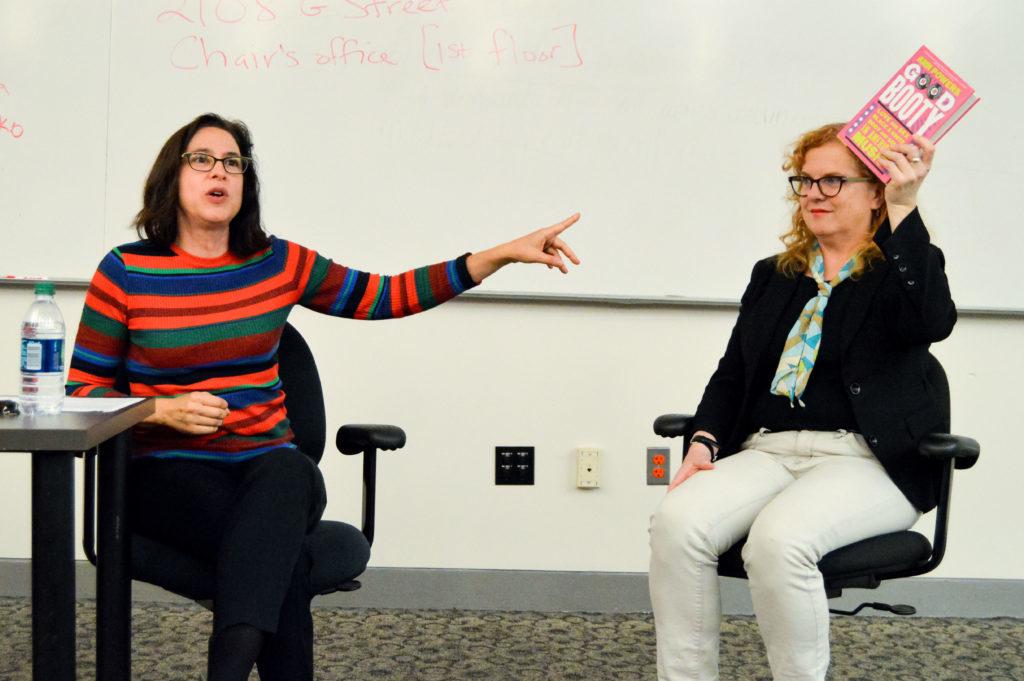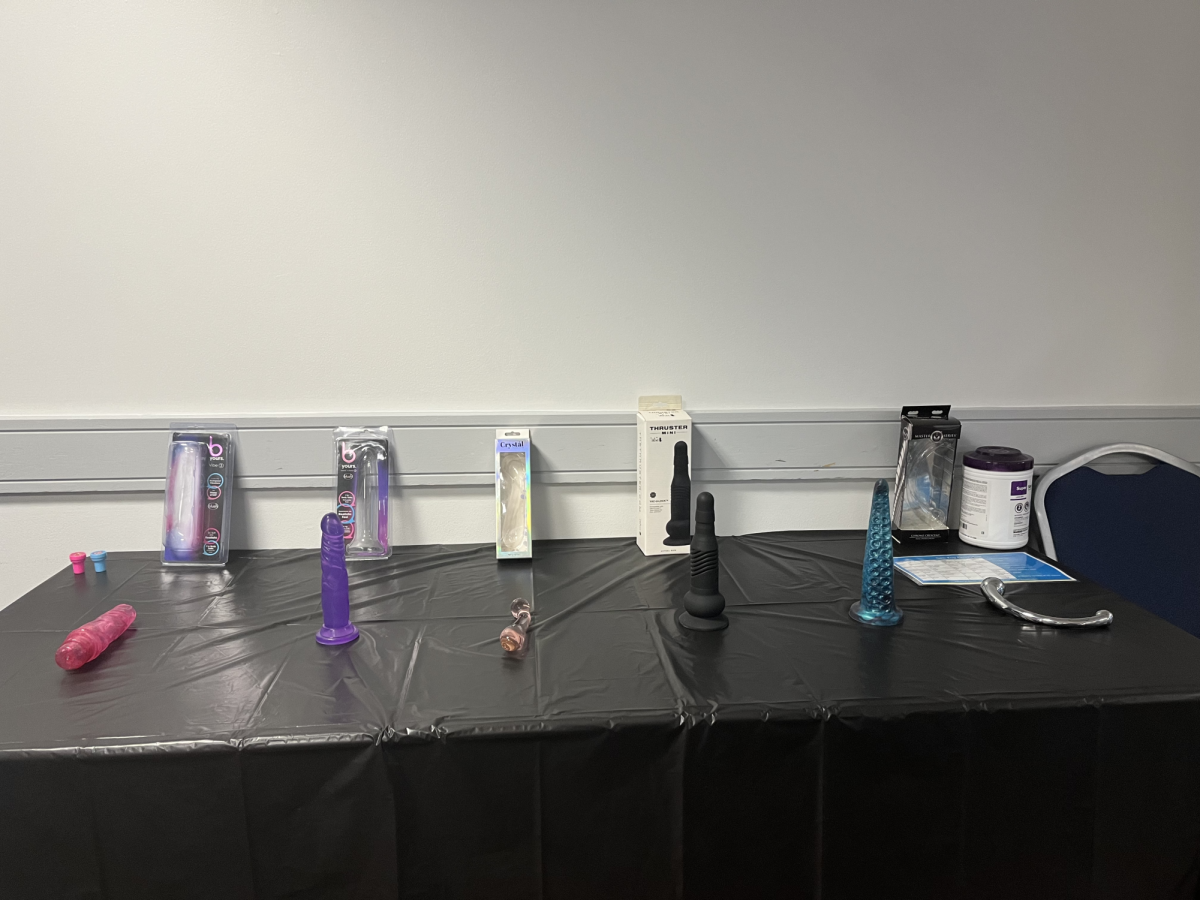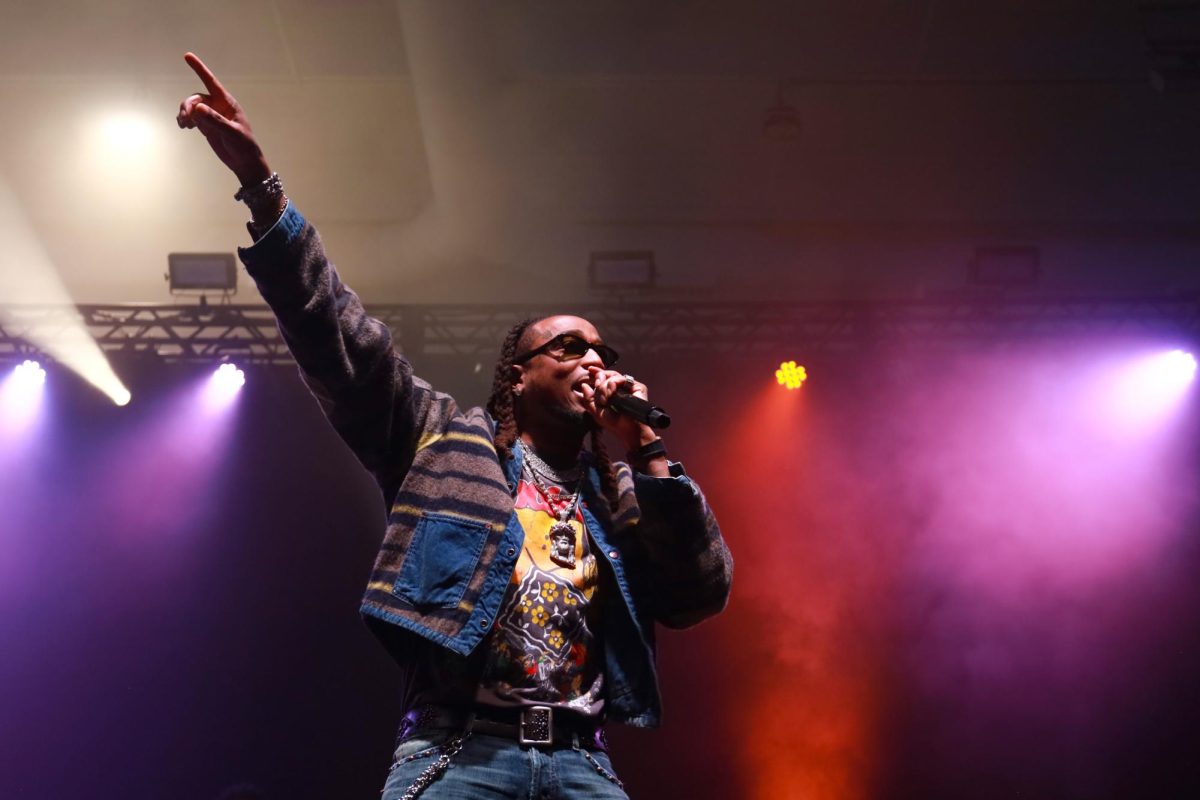Updated: Dec. 7, 2017 at 10:20 a.m.
One of NPR’s pop music critics discussed the link between sexuality, gender and race in American society during a Q&A with a professor Monday afternoon.
Ann Powers, who just released her new book, “Good Booty: Love and Sex, Black and White, Body and Soul in American Music,” spoke to students in a conversation led by Gayle Wald, a professor of English and American studies and chair of the American studies department, in a 1957 E St. classroom as a part of her U.S. Pop Music and Culture class in the American studies department.
The central argument of Powers’ book is that popular music has been the most accepting outlet for Americans to express the complicated nature that surrounds sexuality, which is linked to dynamics of race and gender.
Here were some of the conversation’s highlights:
1. Telling a different story
Powers said most contemporary books from the music genre are in a memoir style about certain artists, but she wanted to stray from that in her new release. The result was forming a story that connects sexuality, music and American culture, and discussing how they are intertwined.
When talking about her inspiration for the book, Powers recalled listening to the “White Album” by The Beatles on vinyl while looking at the album’s portraits of singer Paul McCartney at 9 years old, something she refers to as her “first erotic experience.”
“Music should be intimate,” Powers said. “It could tell the story of the person making it, but also tell the story of me, and feeling those connections gave me some childhood sense of the erotic.”
Powers said the idea of eroticism extends beyond sexuality and describes the intimate connections created between the music and the listener. The sense of intense emotion the album made her feel inspired her to create a story that tells the larger implications of music on society, she said.
“I don’t know if all that was happening when I was nine and looking at Paul McCartney,” she added. “But that’s sort of what motivated me while I was writing this book.”
2. Testing the boundaries of sexuality through song
Powers cited performers such as Madonna, Britney Spears and Miley Cyrus as artists who have pushed the boundary with showcasing sexual desire.
She specifically focused on Madonna as a key player in blurring the line between sexuality and pop music, referencing her 1984 performance of “Like A Virgin” at the MTV Video Music Awards.
“If she had been naked and doing that in a space with triple Xs, we wouldn’t have seen it as shocking, we would have just thought it was sex work,” Powers said. “I think pop music is where we test that line.”
Powers also talked about how the internet has changed the nature of both public and private relationships today, including in the influence of pop music artists. She said Beyonce is a role model for maintaining needed privacy in her personal relationships, referring to how the pop star handled the drama regarding rumors her husband, Jay-Z, had cheated on her.
“I think what she’s done brilliantly is very publicly manage her image and not become victim to the kind of usual invasion of privacy,” Powers said. “When she had her scandal, what did she do about that? She never gave an interview about it, and she made it into art with her album Lemonade.”
3. Talking candidly on gender, race and oppression
Part of Powers’ argument in the book is that American music reflects racism and sexism that is ingrained in America’s culture. She said examining the structures that embed discrimination within society is a complex and difficult process, but often can be accomplished through song.
She said the balance of allowing women to express their sexuality openly while simultaneously dismantling systems of patriarchy, like rape culture, is a paradoxical but necessary task.
As a white woman, Powers noted while writing that her experience with racial issues, such as cultural appropriation, is limited. She said she writes about them because the topics intertwine in music and create a collective societal story.
“I acknowledge that I’m not connected to the points of origin of these stories in a direct way, but on the other hand they all lend on each other and form our shared experience,” she said.
This post was updated to reflect the following correction:
The Hatchet incorrectly reported the course title. The course is U.S. Pop Music and Culture. We regret this error.





